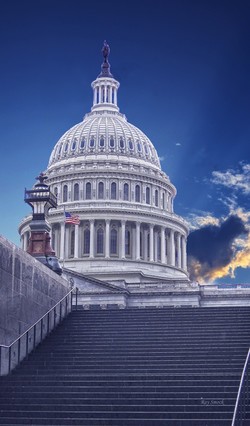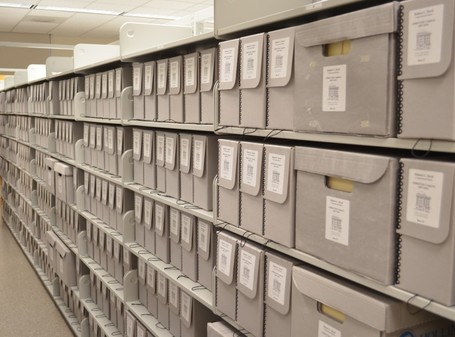 By Ray Smock I was pleased to participate in a panel on the State of Congressional History at the annual meeting of the Society for History in the Federal Government, which met here at the Byrd Center last April. My colleagues on the panel were Richard McCulley of the Center for Legislative Archives at the National Archives, the Senate Historian, Don Ritchie, and the House Historian, Matt Wasniewski. All of us spend a great deal of time thinking about Congressional history, the progress we have made and the long road ahead to preserve and disseminate the rich history of the United States Congress. I had the great honor to serve as the first official historian of the House many moons ago, and that experience opened my eyes to how little the public knows of the history of this part of government and how little many of the people elected to serve there know of this 226 year history of this great ongoing experiment in representative democracy. Fortunately for the past 30+ years both the Senate and House established dynamic small offices to carry out the role of being keepers of Congress’s institutional history and to provide outreach to the public and the press on matters of Senate and House history. We too often think American history is told through the lives of presidents. Congress appropriates $100 million a year to operate the Presidential Library System, yet it appropriates only a small fraction of this amount to care for the official committee records of Congress. Plans are underway to create a new presidential library for President Obama, to be built in Chicago, New York City, or perhaps in Hawaii. Hundreds of millions of dollars in private donations will be used to build the library and provide for a private foundation to support the work of the Obama library (the George W. Bush Library in Dallas raised $500 million). While the National Archives keeps the official records of House and Senate committees by law, no provision in law provides for the preservation and use of the private papers of former Senate and House members. Yet these collections scattered across the country in large and small institutions, get at the heart of what our elected representatives do, how they conducted their offices, and what they did for their home states, districts, and for the nation as a whole. In the past, Congress would occasionally provide appropriations to launch centers holding the private papers of former members, especially long-serving members and leaders of the Senate and House. Usually this was done through various earmarks or grants from federal agencies authorized by law. The Byrd Center was launched with such grants which Senator Byrd initiated so the Scarborough Library on the campus of Shepherd University could be upgraded and modernized and so that a wing of that library would be dedicated as an archive and research center on Congress. There are dozens of places like the Byrd Center all around the country, often on university campuses, that try to do what the well-funded, taxpayer supported, Presidential Libraries do for the history of the presidency.
The panel discussion that follows explains the work we do and the uphill battle we face in trying to bring the story of Congress into the mainstream of our understanding of government and American history. All of us involved are proud to be a part of this effort, even while we often work in the shadow of the resources devoted to the executive branch. As Senator Byrd often said, he worked “with not under eleven presidents.” The branches of government are co-equal. It would be fitting to see a more equitable distribution of funds that would better document the very nature of representative democracy. Comments are closed.
|
Welcome to the Byrd Center Blog! We share content here including research from our archival collections, articles from our director, and information on upcoming events.
Categories
All
Archives
July 2023
|
Our Mission: |
The Byrd Center advances representative democracy by promoting a better understanding of the United States Congress and the Constitution through programs and research that engage citizens.
|
Copyright © Robert C. Byrd Center for Congressional History and Education
|


 RSS Feed
RSS Feed
